Green(ing) H2: National & EU Workshops
Hydrogen, often seen as a key solution to decarbonise, is now at the centre of a whirlwind of expectations and anticipation fuelled, in part, by strategic initiatives such as the EU Hydrogen Strategy and REPower EU. This has opened up a vibrant dialogue about the true potential and practicality of a hydrogen-powered future. EUKI project Green(ing) H2 fostered this dynamic in 2023 with EU-level and national workshops.
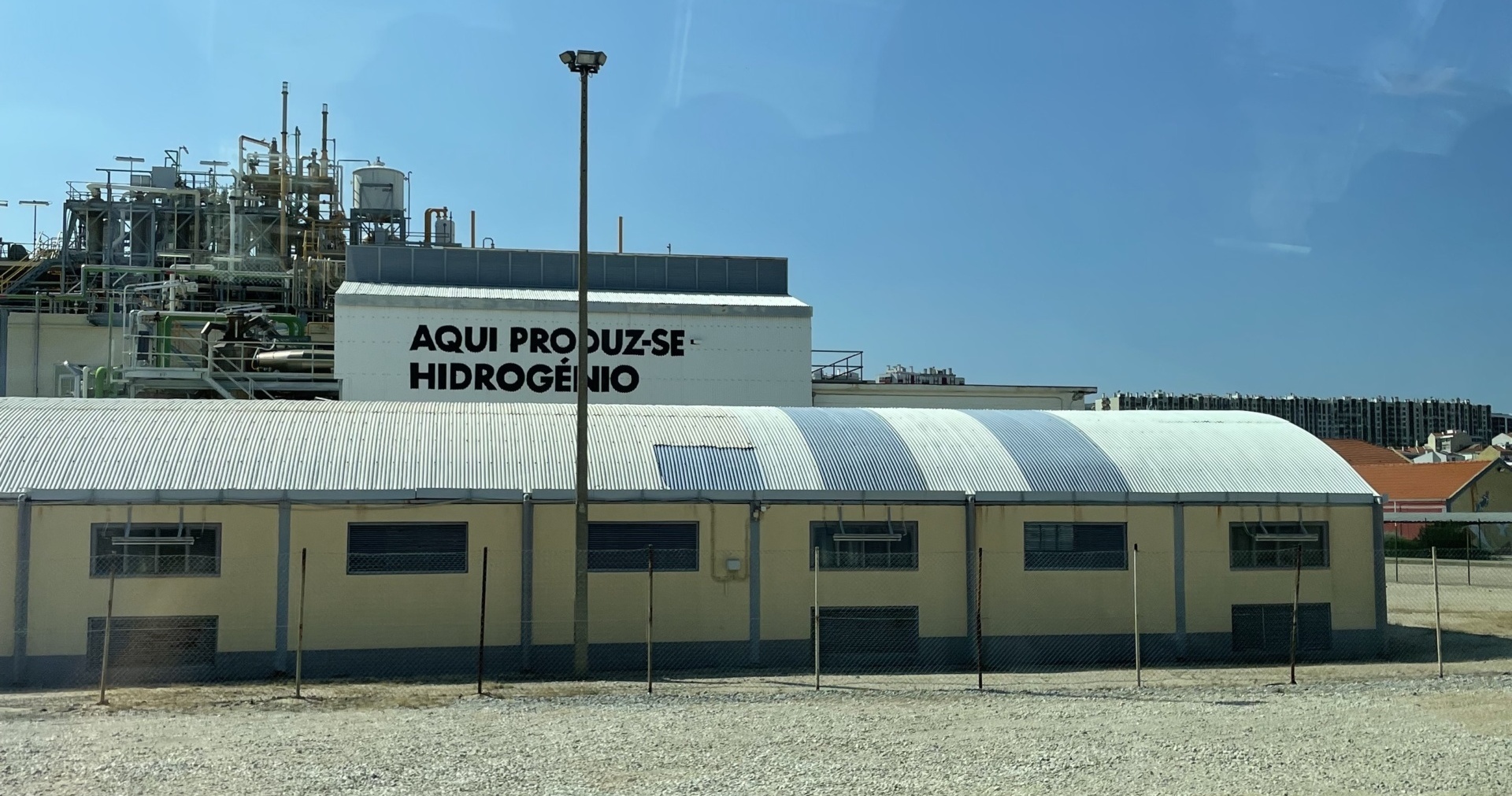
EU Workshop – From Hydrogen Hype to Hard Reality: Realistic Hydrogen Demand and Supply Volumes and its Implications on the EU Hydrogen Economy
To critically examine the prevailing discourse and comprehensively investigate the fundamental role of hydrogen in attaining a sustainable and carbon-neutral future, the EUKI funded project Green(ing) H2, hosted its 2nd EU-level webinar, „From Hydrogen Hype to Hard Reality: Realistic Hydrogen Demand, Supply Volumes and its Implications on the EU Hydrogen Economy“.
The webinar was attended by over 120 participants and presented Bruegel’s study, commissioned by the projects consortium, titled „Analysis of Green Hydrogen Strategies for Germany, Poland and Portugal“ (available at Green(ing) H2 ), followed by a lively debate amongst the invited panellists: Marta Lovisolo (Bellona), Ewa Mazur (RWE), and Ben McWilliams (Bruegel) over the main topics:
- What are possible strategies and policies to prioritise hydrogen application in sectors to achieve highest climate impacts?
- What are realistic hydrogen demands for the EU and are current and planned EU regulations able to deliver these demands?
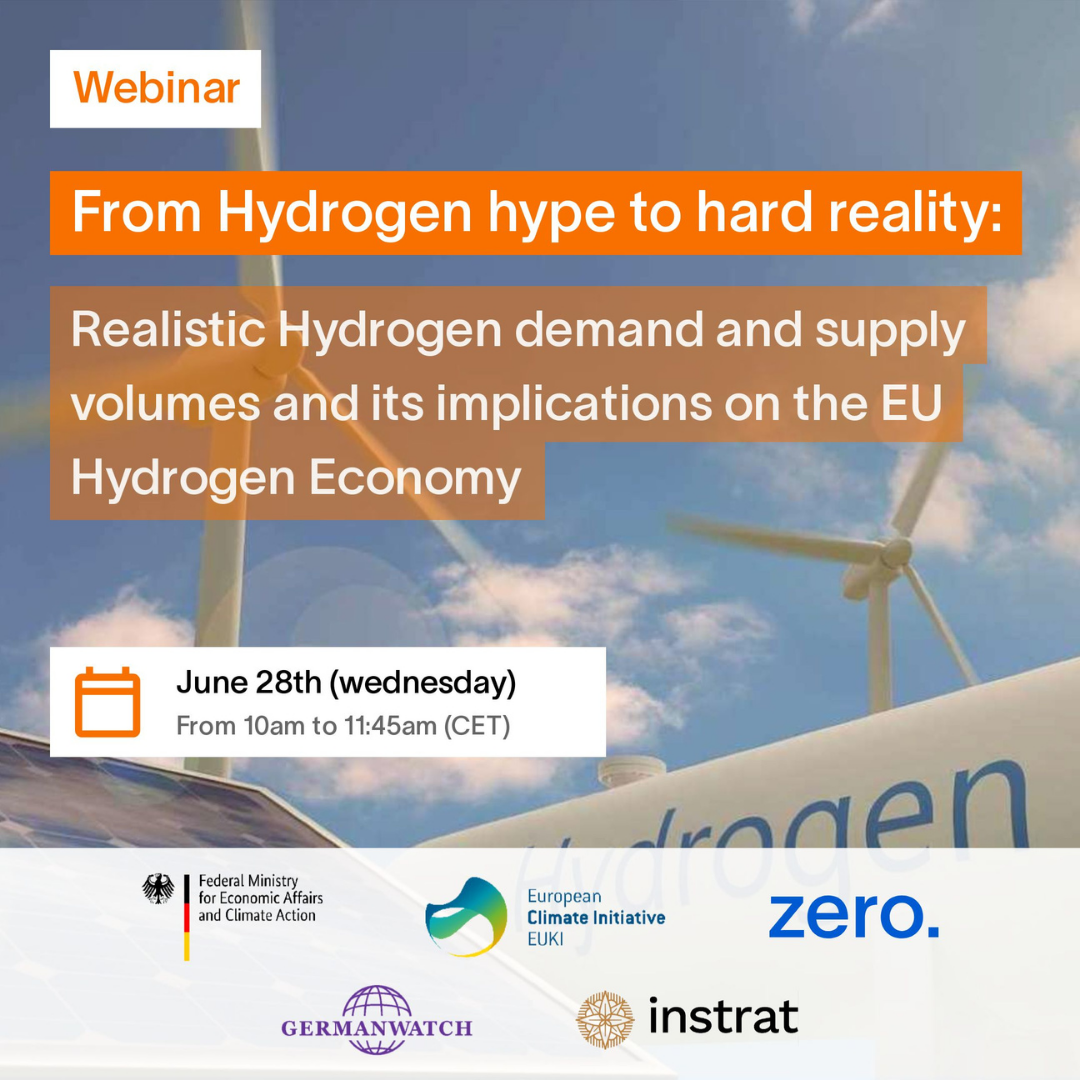
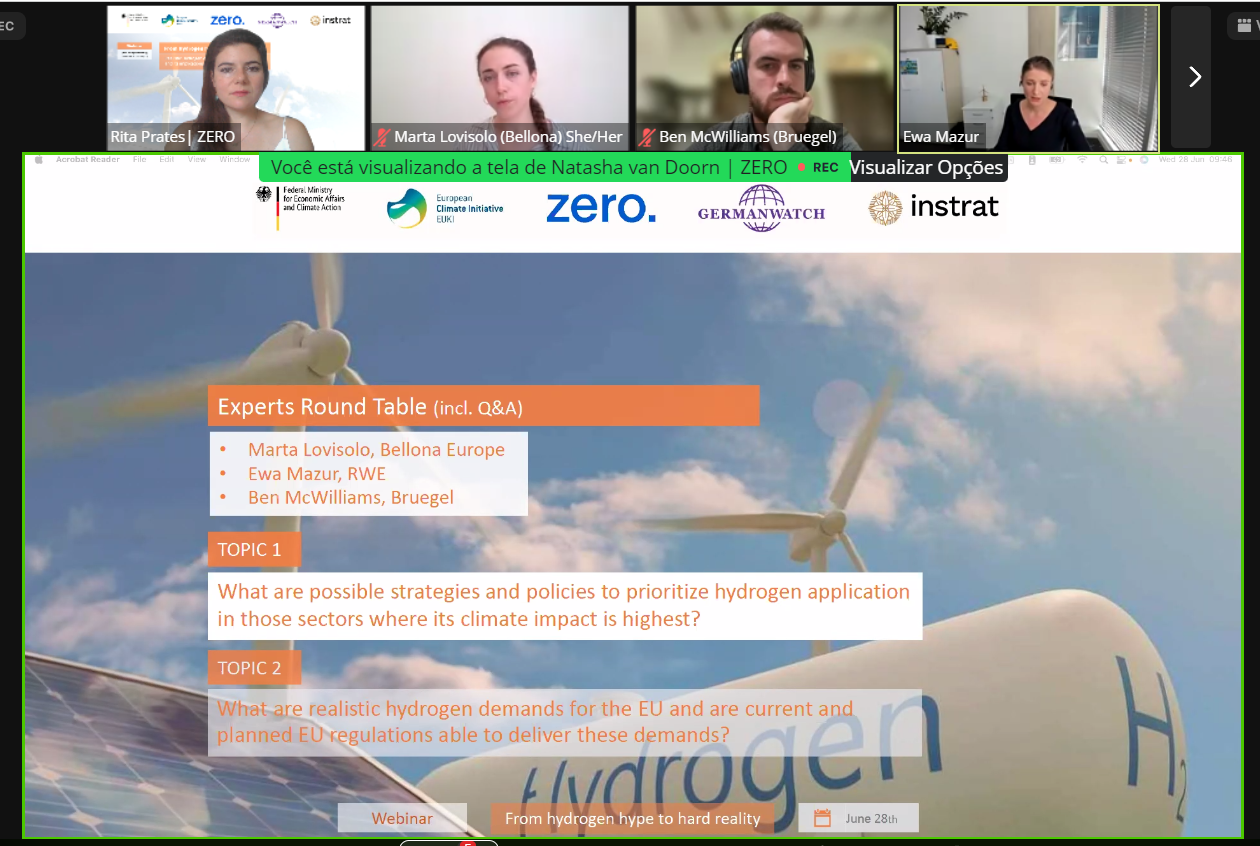
The debate focused on the priority sectors for hydrogen and identified some of the bottlenecks hindering hydrogen production and use, the key insights of this session were:
- Bruegel’s study emphasised the contrast between high expectations for hydrogen production in Europe and the non-corresponding demand.
- The importance of aligning the Industrial Strategy with the Hydrogen Strategy.
- Limited investor confidence in advancing hydrogen projects has led to numerous proposals, yet only a handful of them have managed to secure final investment decisions.
- The absence of directives that promote the use of hydrogen in priority sectors.
- An overall consensus regarding the significance of hydrogen for the energy transition and the need for collaborative efforts to translate plans into tangible reality but also a recognition that hydrogen is not a one-size-fits-all solution and, ultimately, a balanced tailored approach will be key to achieving an effective, sustainable, and decarbonised energy future
Watch the full recording below and download all presentation slides here.
German National Workshop – How do we align the planning of hydrogen infrastructure in Germany with the goal of climate-neutrality
The debate about possible fields of application for hydrogen in Germany is in full swing. This is despite the fact that climate-neutral hydrogen will only be available in limited quantities until well into the 2030s and probably beyond, especially in Germany and Europe. In addition, an infrastructure for transporting hydrogen in Germany and Europe does not yet exist and even the regulatory and legal framework for its planning has not yet been defined.
Against this background, we pose the key question of: how can the planning of hydrogen infrastructure in Germany be aligned with the goal of climate neutrality?
In cooperation with Germanwatch e.V. and in a circle of other civil society organisations, we want to address these questions, among others, in a workshop format:
- What principles and guidelines should hydrogen infrastructure planning follow?
- What are the application areas for hydrogen that need to be prioritised and how does this prioritisation need to be considered in infrastructure planning?
- How should civil society and other actors be involved i n planning to ensure these principles?
- What role can or must state actors play in planning or financing infrastructure?
- What can we learn from infrastructure planning for electricity and natural gas, and how should these be blended with hydrogen infrastructure planning?
See the full agenda here.
Portuguese National Workshop – A critical look at the role of hydrogen in the energy transition
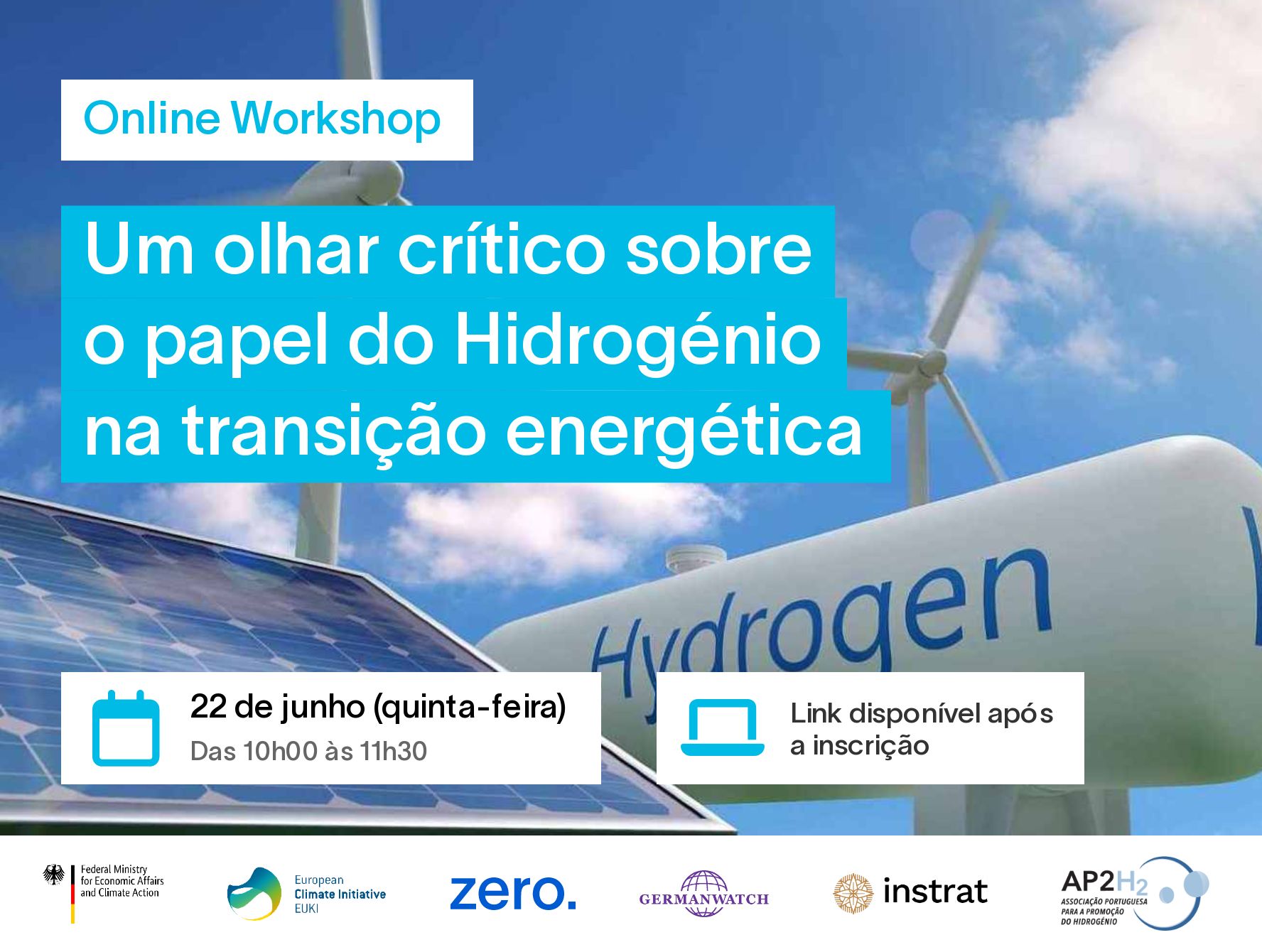
Green hydrogen has emerged as the infallible solution for the decarbonisation of the energy sector and mobility, as an alternative to fossil fuels, however, and given that it is a „hot“ topic on the national but also global agenda, it is necessary to reflect on the implications, opportunities and associated challenges.
For this analysis, ZERO hosted a hybrid webinar, an in-person workshop and organised a visit to a hydrogen plant production under the theme: „A critical look at the role of hydrogen in the energy transition“ with almost 100 on- and offline attendees in total. See the full agenda here.
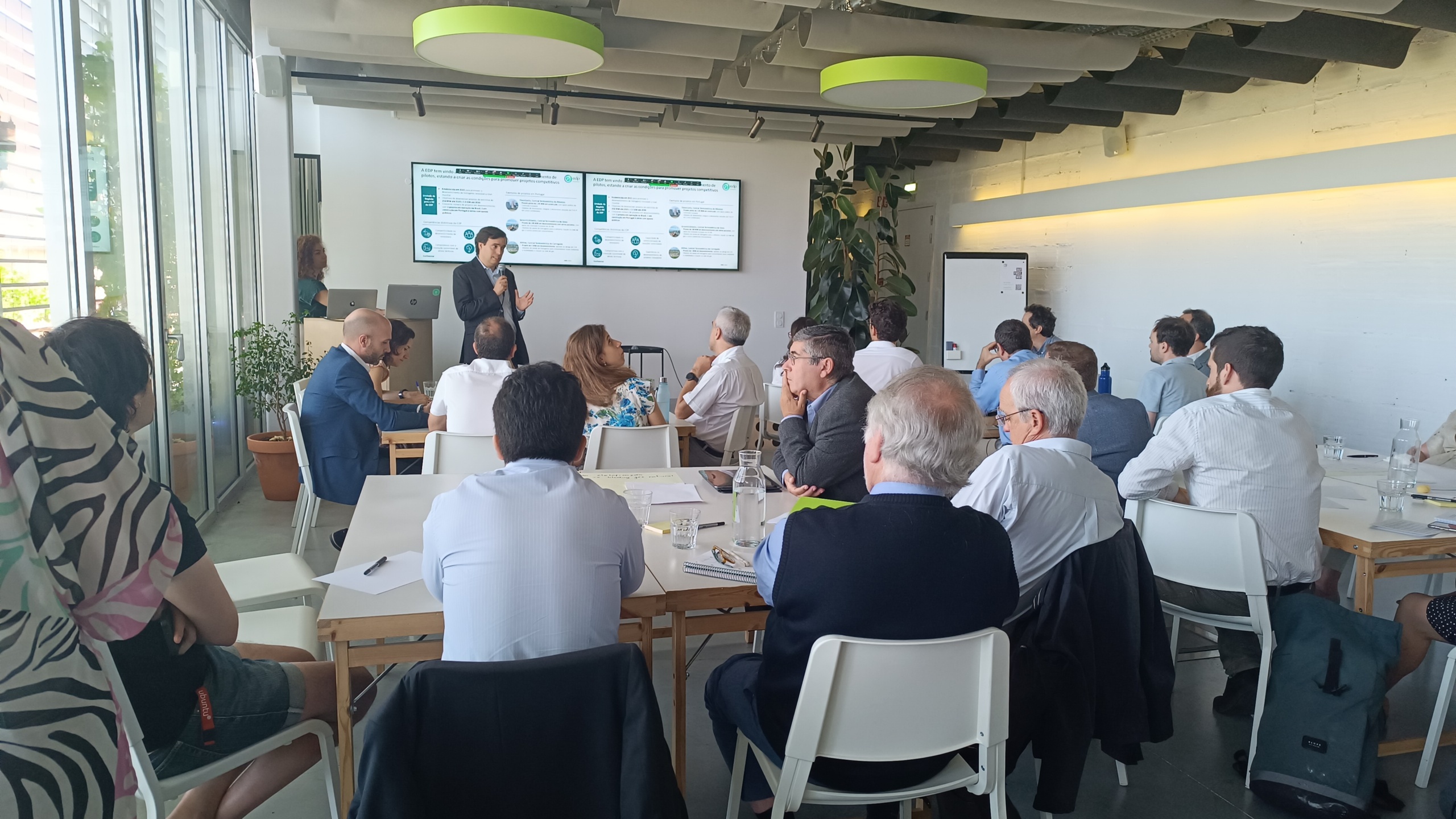
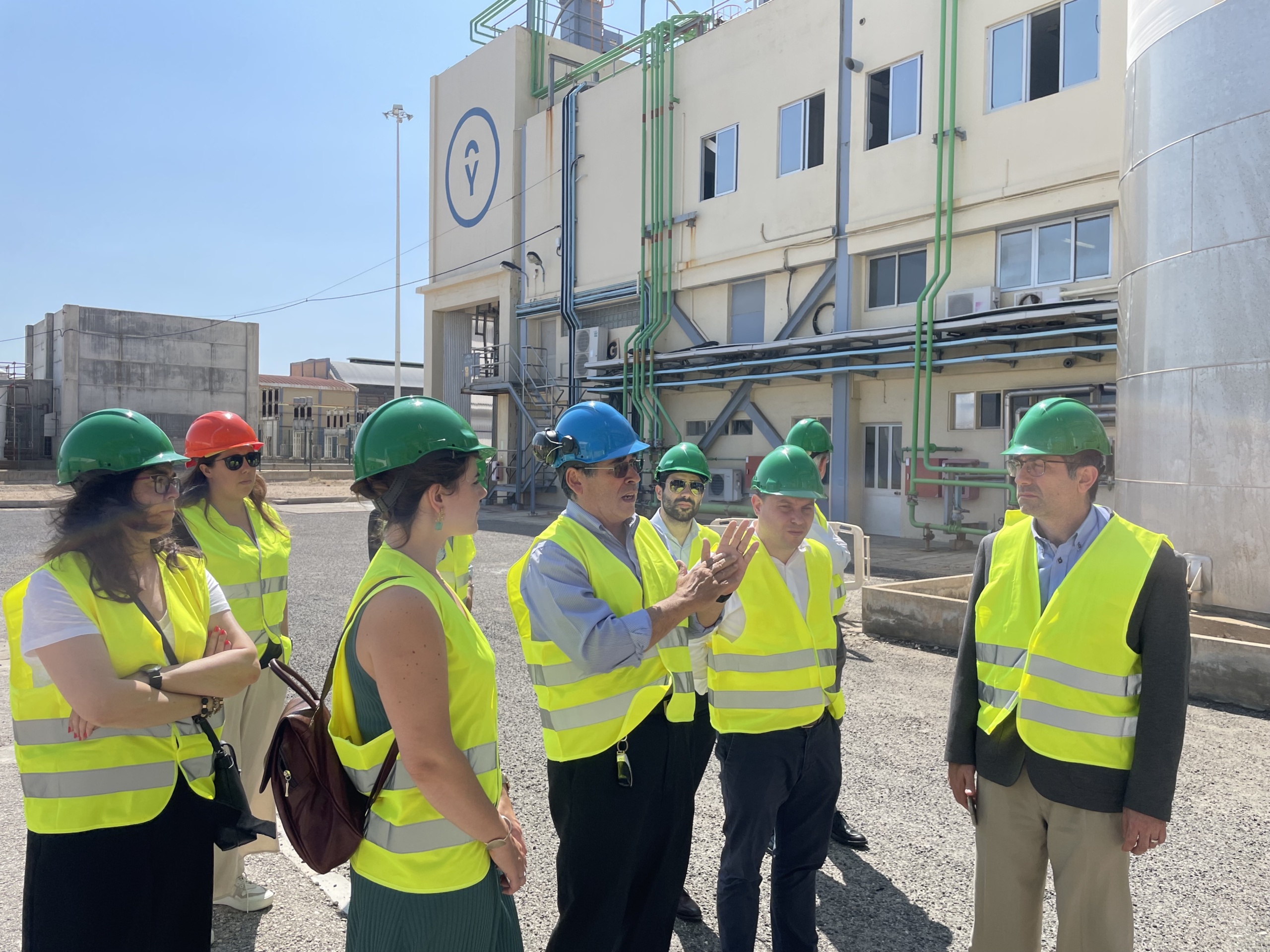
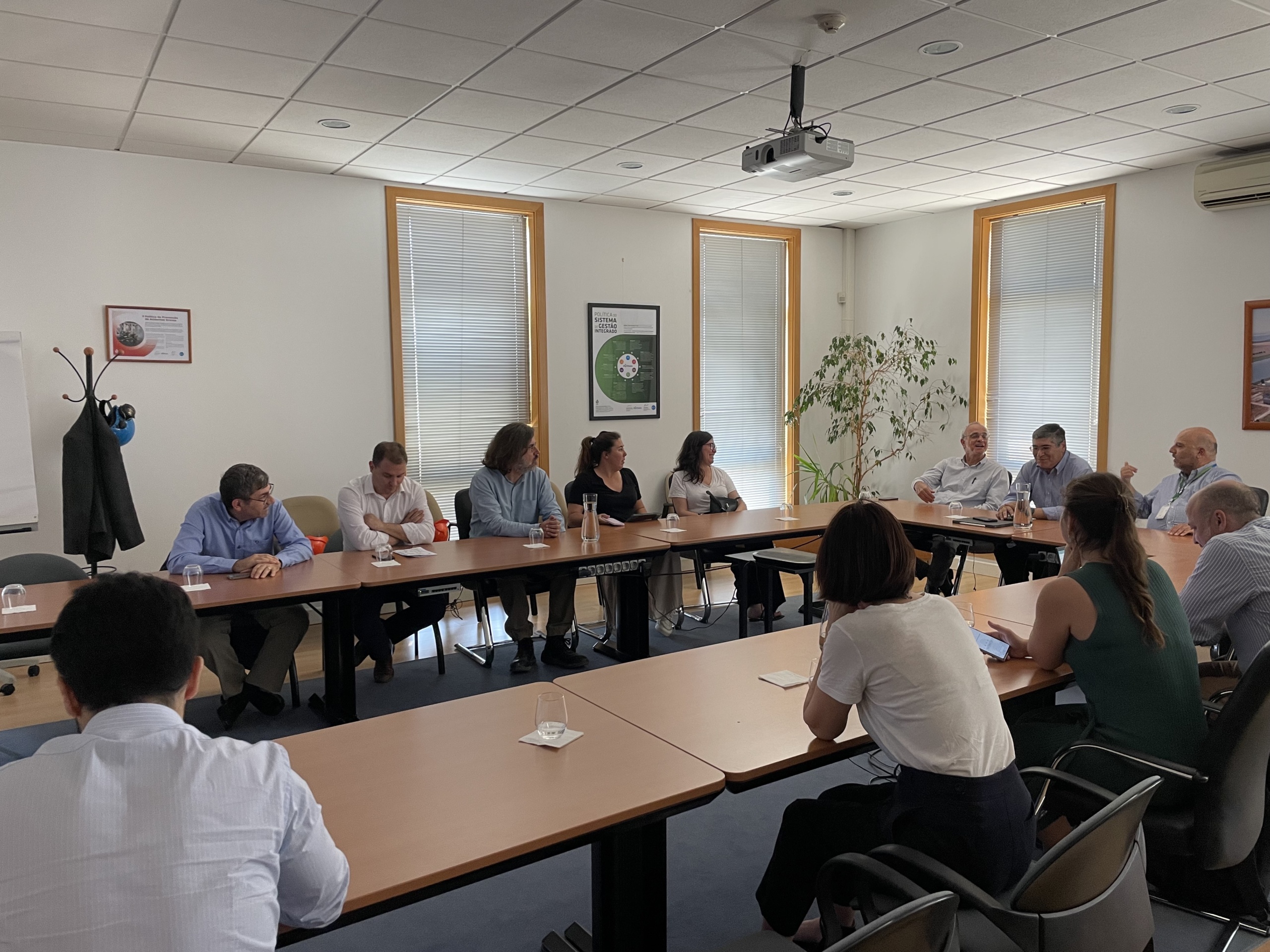
ZERO brought together experts from industry, research and civil society to critically analyse the different possibilities for green hydrogen in Portuguese industries, taking into account the national hydrogen strategy and trying to answer questions such as: How should we prioritise the production and use of green hydrogen? And what are the downsides of exporting?
Polish National Workshop – Hydrogen Economy in the Update of Polish Strategic Documents
Poland is currently updating key strategic documents, including the National Energy and Climate Plan (NECP) and the Energy Policy of Poland until 2040. Civil society stakeholders are closely watching the progress, particularly regarding the faster adoption of renewables. However, the decarbonisation of the Polish economy involves broader changes in the industry, transport, and heating sectors, especially given the importance of reducing dependence on imported natural gas due to the Russian invasion of Ukraine.
The focus now turns to the hydrogen economy, which has gained prominence in European policymaking. Revised Polish energy strategies ought to reflect these developments. In order to facilitate the inclusion of hydrogen in the Polish decarbonisation roadmap, Instrat Foundation organised an in-person workshop in Warsaw, titled: “Hydrogen Economy in the Update of Polish Strategic Documents”. It precisely aimed to update participants on recent developments, share Instrat’s insights on hydrogen policies, and gather perspectives from various organisations involved in hydrogen-related activities.
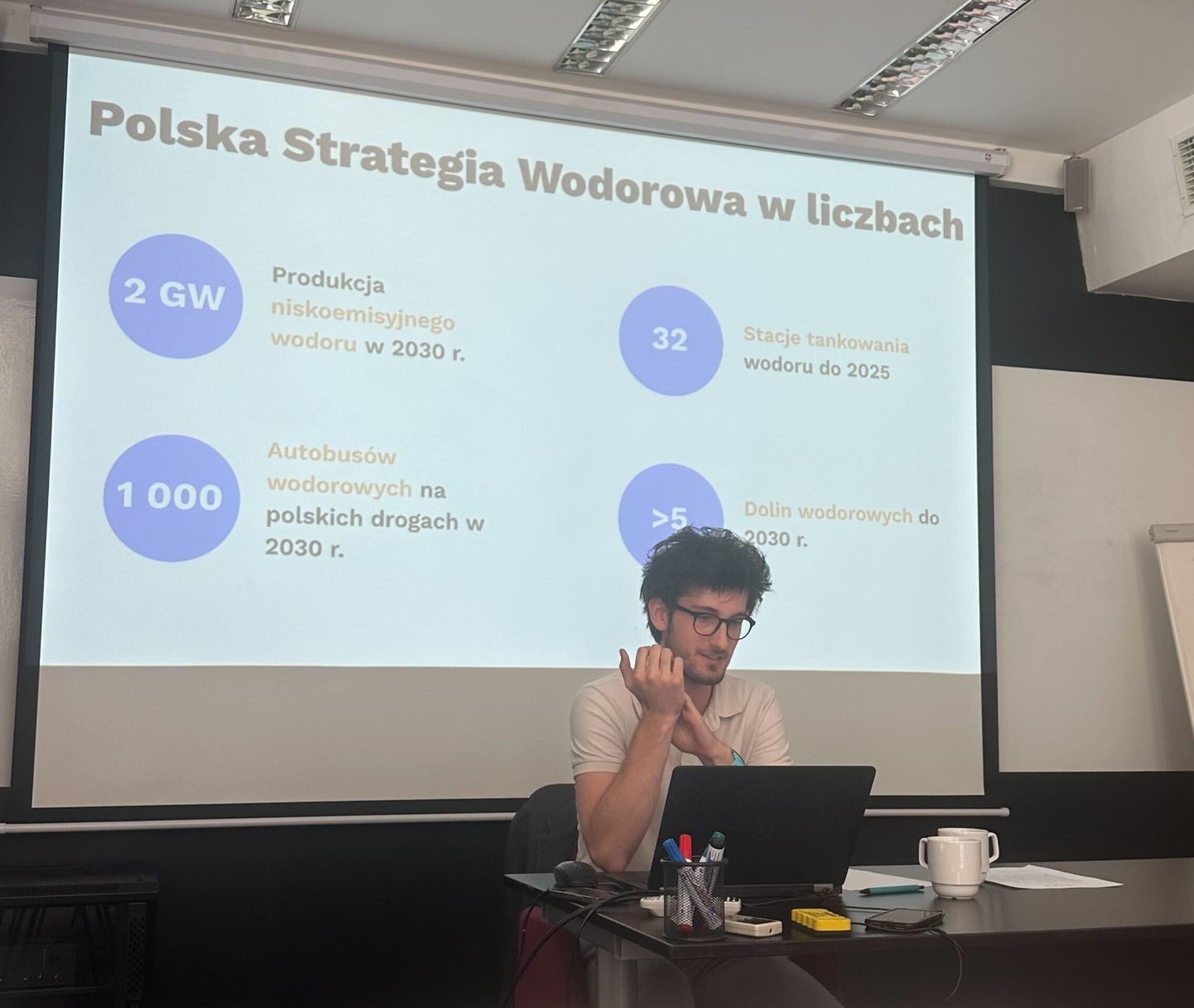
Polish National Workshop, Photos: ©ZERO.ong
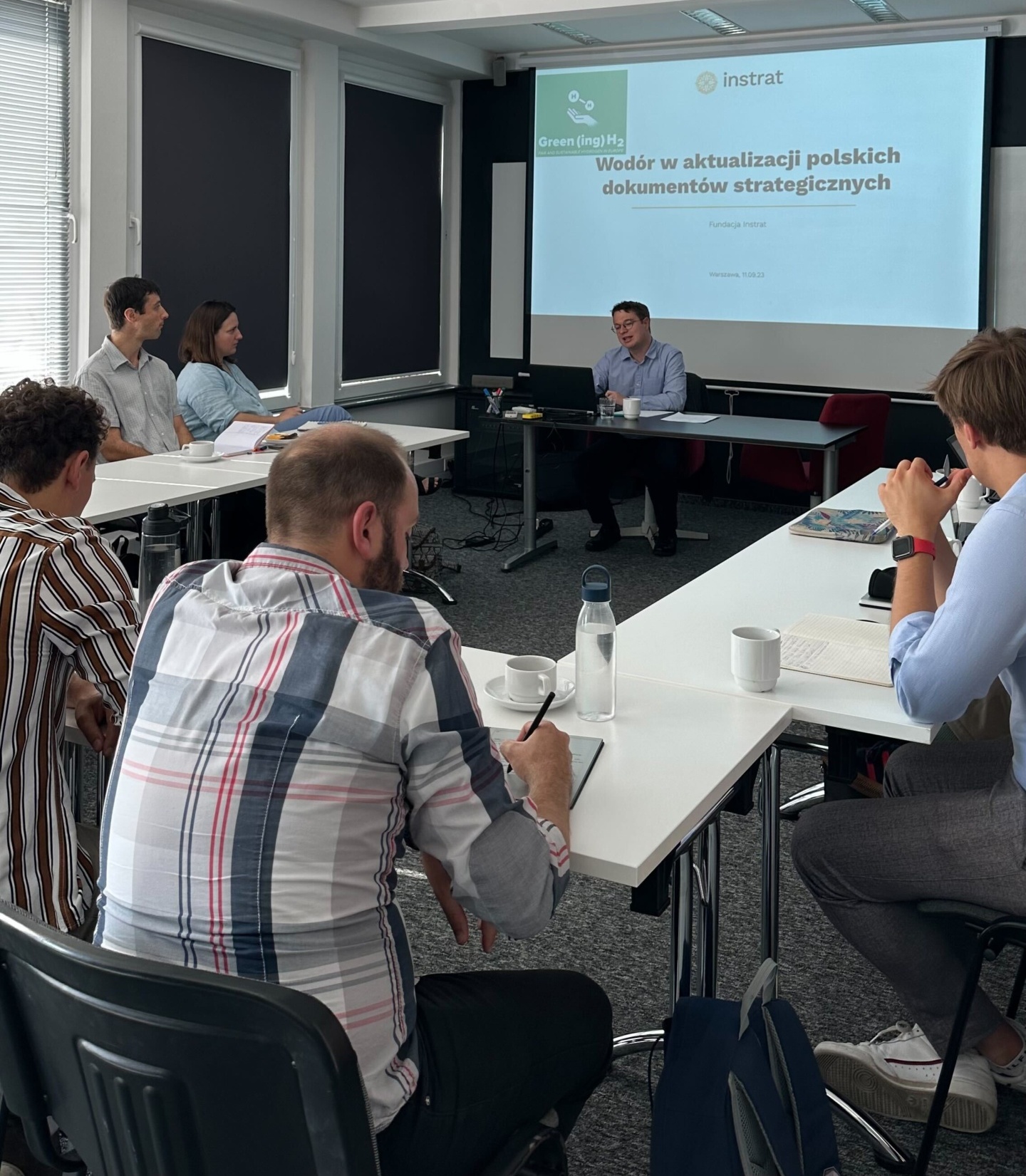
The workshop attended by 14 participants had three sections:
1. European policy developments;
2. The current state of Polish hydrogen plans and legislation;
3. The potential role of hydrogen in the updated NECP.
The main key takeaways were:
– Poland should set more ambitious and precise decarbonisation targets for the industry, reducing greenhouse gas emissions, and decreasing reliance on imported fossil fuels. Hydrogen will play a significant role in this over the medium to long term.
– Poland should establish a position on global hydrogen trade to enhance energy security and guide early investment decisions, considering geopolitical and technological uncertainties.
– Government subsidies for the hydrogen economy should be prioritised, based on critical analysis and consultations with civil society. Controversial plans, like supporting hydrogen in residential heating or a broad rollout of hydrogen-based vehicles, should be reconsidered. Instead, no-regret uses of low-carbon hydrogen, for example as a chemical feedstock, ought to be prioritised.
– Comprehensive energy system modelling with clear pricing and technological assumptions is essential to understand hydrogen’s role in a low-carbon economy. Qualitative declarations about expanded potential for hydrogen, included in the preliminary forecast scenario published in June 2023, should be now supplemented with in-depth quantitative analysis.
– Civil society input on the renewable hydrogen economy faces challenges due to early-stage deployment and business interests dominating discussions. Additional research and knowledge-sharing activities can promote a more balanced public debate.
The inputs gathered will serve as valuable information for guiding additional Instrat endeavours connected to scenarios concerning the energy transition in Poland, including active participation in public consultations once the draft documents have been released.
All workshops and findings of the Green(ing) H2 project feed into a set of Guidelines and a Policy Brief for policymakers and stakeholders. For more information have a look at the project page below.
